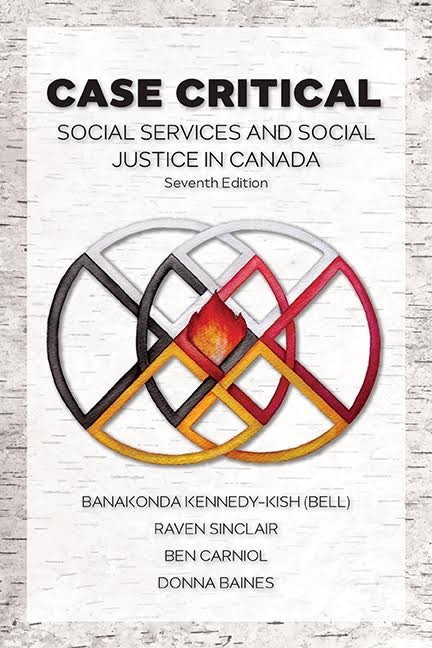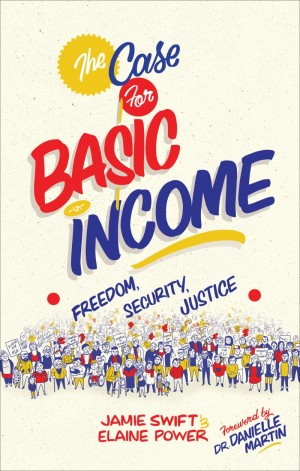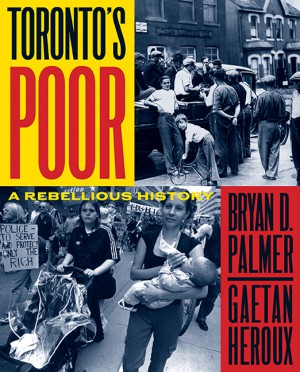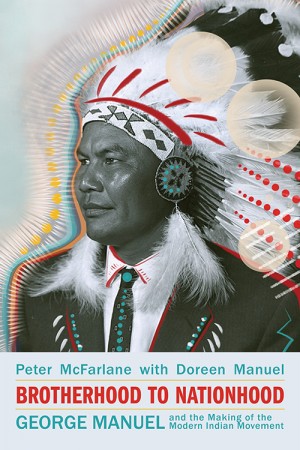
Case Critical
Social Services and Social Justice in Canada
Seventh edition
This latest edition of Case Critical applies decolonized, critical analysis to highlight what is often hidden from view for most Canadians: the personal trauma and communal devastation inflicted on Indigenous people by past and present colonialism and the ways in which neoliberal tax cuts, austerity, and privatization create more inequality, homelessness, and despair among both Indigenous and non-Indigenous people. Social service providers, the authors argue, should become social activists, working in solidarity with progressive grassroots social movements in order to de-legitimatize colonial and neoliberal policies.
Looking for the PDF of Table 5.1: Social Work Skills in Social Services (2017)? Download it under “Extras”.
Praise
The four collaborative authors of the seventh edition of Case Critical offer social work students and practitioners a text that combines a critical analysis of social services and social work history, skill application with real life examples, while emphasizing the ongoing pursuit of social justice for all marginalized populations. A must-read for all progressive social workers and students.
– Elizabeth Radian, PhD, RSW, Social Work Instructor and Consultant
This seventh edition of Case Critical is timely, given that the profession of social work is just beginning to take up the calls to action of the Truth and Reconciliation Commission (2015). The authors—two who are Indigenous and two who are not—show how the ongoing effects of colonization are not just a problem for Indigenous peoples, but rather for all who live in Canada today. These four authors explore the ways that social workers are taking up these challenges through activism and the principles of kindness, honesty, sharing, and strength. Although social workers continue to practice in times that are indeed “case critical,” these authors also plant seeds to re-imagine a better future.
– Cyndy Baskin, Associate Professor in the School of Social Work at Ryerson University and author of Strong Helpers’ Teachings: The Value of Indigenous Knowledges in the Helping Professions
Subtle or explicit, a nation manifests itself unjust; Case Critical takes us through the history from time immemorial to the present to tell us how it happens in Canada. Well-articulated with real life anecdotes, this book unveils the finicky inside stories of social welfare in Canada, and the potential perils in the social work profession, but leaves us with hope for positive change. Case Critical is clarion call to reconnect to our roots, to deconstruct structural paradigms and seek alternatives, and to learn from diversity. Reading Case Critical makes you a better person, and then a better social worker.
– Baiju Vareed PhD, RSW, Instructor in Social Work, Red Deer College
Case Critical asks us to examine our lives, families, and communities to look for sites to decolonize and to act in a just, fair, and balanced way in our relationships with one another. In Canada, we face willful ignorance of the ongoing colonization of Indigenous peoples combined with white supremacy, racist and homophobic attacks, and widespread poverty. Until the helping professions admit there is a problem, decolonization alone will not be the solution. We would be wise to consider how each of us can be transformed by kindness, honesty, sharing, strength, and love in our social and political practice.
– Dr. Patricia D. McGuire, Kishebakabaykwe, Carleton University
An exceptional seventh edition! Updated, inclusive, brilliant, meaningful, and relevant. An outstanding resource for learners, educators, and practitioners. This revised edition offers us all a poignant lens for critical social work practice. I applaud with a standing ovation the authors’ collaborative scholarship that exemplifies truth and reconciliation, and that fuels consciousness-raising so that we can all take our place as transformative change agents working to restore humanity in Creation and in our practice.
– Kathy Absolon, MSW, PhD, Associate Dean / Associate Professor, MSW Aboriginal Field of Study, Faculty of Social Work, Wilfrid Laurier University, and author of Kaandossiwin: How We Come to Know
Case Critical successfully weaves Indigenous and settler scholars’ perspectives into a braid that clearly and remarkably challenges ongoing oppressions in Canada. The authors’ voices provide an alternate path towards liberation for those who strive for a more progressive, inclusive, and supportive society.
– Michael Anthony Hart, Fisher River Cree Nation, Canada Research Chair in Indigenous Knowledges and Social Work, Associate Professor, University of Manitoba
Case Critical should be required reading in every school of social work across the country. It continues to be an important tool to help inspire social justice. It is a must-read.
– Shari Brotman, PhD, Associate Professor, McGill School of Social Work
Case Critical disrupts those past preconceived views of Indigenous peoples and sets the Canadian social work perspective straight with Indigenous truth and knowledge throughout the whole book. Through the spirit of Indigenous ancestral knowledge, Anishnaabe Elder, Banakonda Kennedy-Kish (Bell) and Cree Scholar Raven Sinclair provide a valuable Indigenous lens to the historical and socio-political experiences of Indigenous peoples. Ben Carniol and Donna Baines offer a critical and progressive ally perspective as it relates not only to the Canadian state, but to Canadian society as a whole in this era of Indigenous–Settler reconciliation. This book is a must-read for all Canadian educators and students, as well for the field of Social Work, especially in this time of honouring truth, action, and social justice for Indigenous peoples. Nya:weh (gratitude) for this valuable publication!
– Bonnie M. Freeman, PhD, Algonquin/Mohawk from Six Nations of the Grand River Territory, School of Social Work, McMaster University
To this Indigenous social work graduate and practitioner, the seventh edition of Case Critical offers incredible medicine. Under colonial rule, beginning in the 1700s, many of my Mi’kmaq people began to starve to death. In 2016, it still feels as though we are starving, particularly in academia—still waiting for the basic nourishment that comes from respectful recognition—from of a sense of being valued and belonging. The traditional teachings of Banakonda (Ojibwe Elder, Scholar, Artist) that open this book speak to this 300-year-old hunger in a deep, spirit-nourishing way.
– Bagamiayyaabikwe Michelle Sutherland, MSW, RSW, Executive Director, White Owl Native Ancestry Association
This is a wonderful addition to the expanding literature on progressive social work practice. With its co-authorship of Indigenous and non-Indigenous scholars, it is unique in its critical and intersectional engagement with neoliberalism, colonialism, and privilege. This important book moves beyond critique to provide inspiring examples of transformative practices within traditional social services, as well as in social justice movements, labour unions, alternative social services, and Indigenous communities. It offers critical hope and practical strategies to resist the onslaught of increasing inequality, marketization, and oppression.
– Bob Pease, Professor of Social Work, University of Tasmania, author of Undoing Privilege (Zed) and co-editor of Doing Critical Social Work (Allen and Unwin)
Reconciliation means not saying sorry twice. Social work needs to go beyond acknowledging past harms to address current inequities and discrimination. As a collaboration between Indigenous and non-Indigenous educators, Case Critical represents the very best of social work theory and practice: introspective, meaningfully inclusive, justice-oriented, and transformative. This book is essential reading not only for social workers, but for anyone concerned with systemic change, ethical work with Indigenous peoples, and social transformation.
– Cindy Blackstock, Executive Director, First Nations Child and Family Caring Society of Canada, and Professor at McGill University
This seventh edition of Case Critical, coming at a time when many of us are thinking about responding to the Truth and Reconciliation Commission of Canada’s Calls to Action, is a beautiful example of teams of individuals from diverse backgrounds coming together to dialogue, write, teach one another, teach us, challenge us, and demonstrate how we can work together in respectful, transforming ways.
– Judy White, PhD, RSW, Dean, Faculty of Social Work, University of Regina
It is indeed exciting to see this expanded revision of Case Critical’s seminal Canadian work. This seventh edition adds considerably to the growing literature on decolonizing social work. In theorizing beyond mainstream structural social work, Case Critical will resonate with Indigenous peoples’ issues, further their political cause for justice, inclusion, and better access to services, and validate the experiences of Indigenous social workers in Canada and beyond. It is essential reading for all social workers who share in these causes.
– Mel Gray, Professor of Social Work, University of Newcastle, Australia
This insightful and very readable book cuts through layers of neo-conservative misconceptions to show that unfair advantage, not talent, accounts for the ever-rising inequality in our society. Case Critical has become an essential primer on social justice—and injustice—in Canada.
– Linda McQuaig, author and journalist
Contents
| Preface | |
| Chapter 1 | Ntamkidwinan First Words |
| Chapter 2 | Power, Ideology, and Social Services |
| Ongoing Colonialism and Its Consequences | |
| Canadian Apology for Residential Schools | |
| Indigenous Child Removal System and the "Sixties Scoop" | |
| Today’s Colonialism | |
| Individualism and Privilege | |
| Progressive Social Work | |
| Chapter 3 | Naming and Resisting Injustices |
| Colonial Privilege | |
| Racism and Privilege | |
| Class Privilege | |
| Patriarchal Privilege | |
| Hetersexual / Cisgender Privilege | |
| Ableism and Privilege | |
| Social Justice and Social Services | |
| Chapter 4 | Roots: Early Attitudes |
| Early North American Social Welfare | |
| "Survival of the Fittest" – Social Darwinism | |
| Social Work: The Beginnings | |
| Oppression and Resistance | |
| Indigenous "Assimilation" and Resistance | |
| Inuit and Métis | |
| Early 1900s Unrest | |
| Social Programs and Social Injustices | |
| Progressive Movement | |
| Neoliberal Backlash | |
| Chapter 5 | Diverging Schools of Altruism |
| Conflicts inside the Social Work Curriculum | |
| Conventional: Ecological – Systems Theory | |
| Anti-Oppression Perspectives | |
| The Controversy about Competency Models | |
| From Aboriginal Circles in the Classroom – to Indigenizing Social Work | |
| Chapter 6 | Social Workers: On the Front Line |
| Where Social Workers Work | |
| How People Become Social Service Users | |
| Hierarchies and the Stratification of Social Services | |
| The Challenge of Social Work | |
| The Bottom Line: Managerialized Social Services | |
| Privatization of Social Services | |
| A Challenge: This Story Must Change | |
| Chapter 7 | Reality Check: Service Users’ Experience |
| Welfare “Reform”: Smoke and Mirrors | |
| Different Shades of Social Coercion | |
| Caring Social Services: Take a Deep Bow | |
| Chapter 8 | Challenging Feeling Hopeless |
| Social Justice Movements | |
| Labour Unions and Social Work | |
| Dealing with Challenges: Tiny Miracles | |
| Alternative Social Services | |
| An Activist Agenda by Progressive Social Workers | |
| Chapter 9 | Toward Liberation |
| Challenging Multiple Oppressions | |
| Themes for Liberation in Social Work Practice | |
| Indigenous Healing and Liberation | |
| Liberation and Social Services | |
| The Pendulum of Practice: A Tool for Assessing Cultural Competence | |
| Completing a Cultural Competence Self-Audit | |
| Competence Matrix | |
| Supporting and Actualizing Transformation | |
| Chapter 10 | Nawây-pîkiskwêwina After-Words |
| References |



